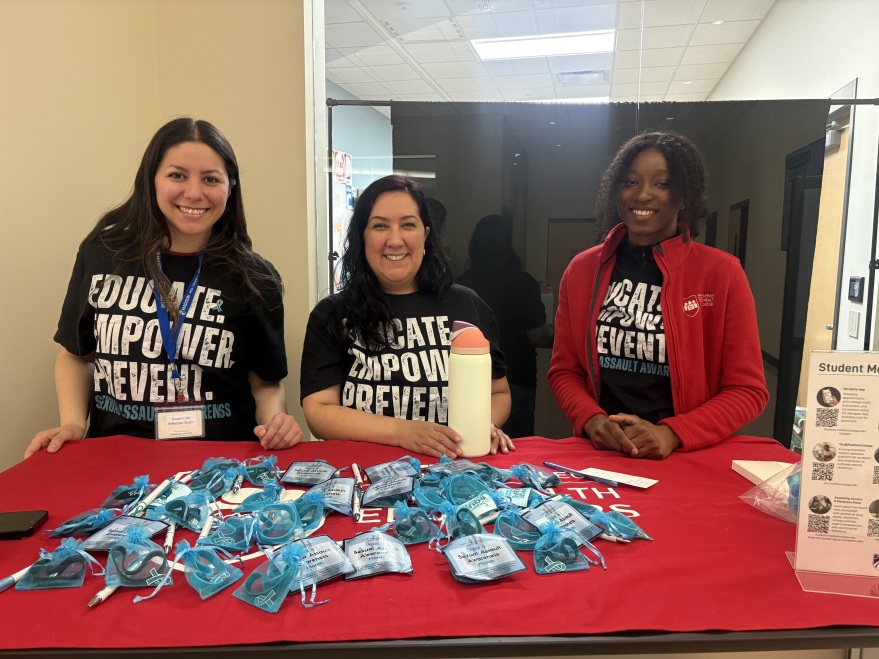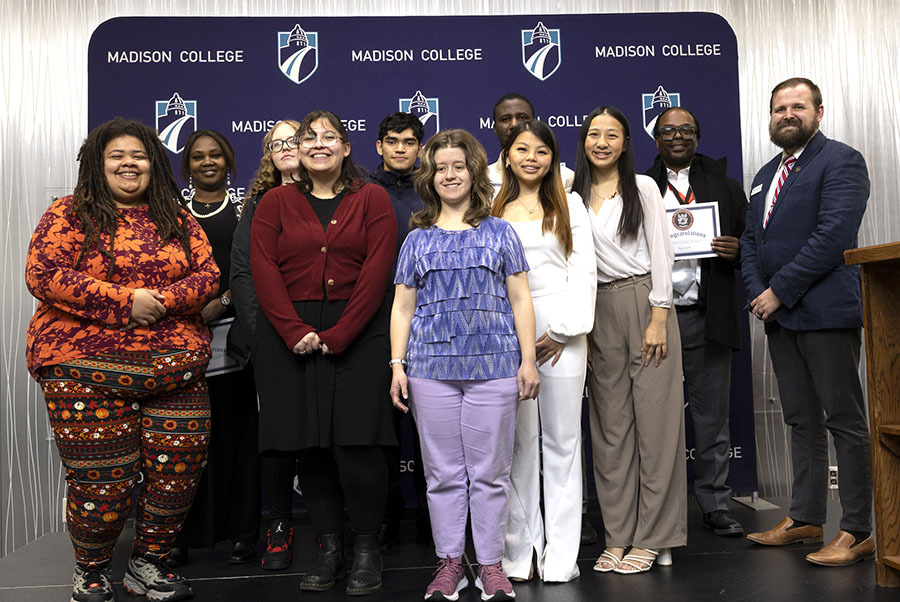Scoring droughts bumped Badgers down
March 21, 2023
When the Wisconsin Badgers entered the 2022-23 men’s basketball season, almost nobody could’ve predicted that the season would end with the Badgers in the National Invitation Tournament (NIT) instead of the NCAA Tournament.
Despite losing Johnny Davis and Brad Davison to professional basketball, the Badgers came into this season with most of last year’s lineup back, plus adding freshman Connor Essegian and transfers Kamari McGee (UW-Green Bay) and Max Klesmit (Wofford).
The NIT seemed even less likely two months into the season, when the Badgers sat at 11-2 and peaked at No. 14 in the AP poll. And at the time this record didn’t seem like a fluke either, with impressive wins over USC, Dayton and on the road against eventual Big East champion and rival Marquette. One of their losses was on a buzzer beater against the defending national champion (and eventual one-seed in this year’s tournament) Kansas.
Even barring a cold stretch in conference play (which is very common in college basketball given the long season), it seemed impossible that Wisconsin would miss the NCAA tournament given the resume they had already created, plus the strength of the Big Ten conference schedule.
But here we are. The Badgers went 6-12 in their last 18 games and missed the NCAA tournament for only the second time in the last 25 seasons and are now slated for a rare mid-March home game in the first round of the NIT, a tournament they haven’t appeared in since 1996. So what went wrong?
Teams don’t just lose 12 out of 18 games out of sheer luck, despite how tough the Big Ten seems at times. Injuries are part of it, with Klesmit and senior Tyler Wahl missing some time. But then again, every team deals with injuries one way or another.
One glaring thing I’ve noticed throughout this season is the Badgers inability to play a blowout game. Other than wins against South Dakota (85-59) and Lehigh (78-56), the Badgers didn’t win a game by more than 11 points all year. On the other end of things, other than losses at Indiana (45-63) and Maryland (55-73), they didn’t lose a game by more than 10 points all year. This is kind of a glass half full/half empty scenario, because you could look at it as a good thing that against top tournament teams like Purdue, Kansas and Marquette, the Badgers always played them close. But I look at it as more of a problem than a good thing.
I think we all shared the same frustration when games against non-tournament teams like Minnesota, Ohio State, Rutgers, Nebraska, etc. all went the same way: a down to the wire finish where it seemed like Wisconsin could have and should have put them away way earlier in the game. This issue was happening even during our 11-2 start, with the Badgers struggling to pull away from teams like Dayton and Wake Forest.
Even an early season home game against Green Bay (who would eventually finish 3-29 and fired their coach 21 games in) was way closer than it should’ve been. This issue stems from the offense going on their famous dry spells (and I say famous because this has been happening for years now), and unlike previous years the team’s defense and rebounding wasn’t consistent enough to save them.
Greg Gard needs to catch the offense up to modern times if they don’t want a season to go this way again. Emphasizing ball movement and ball reversals over running the shot clock down to zero every time is a great start.
Too many times this year the offense didn’t look like they knew what to do for 20 seconds and then had to either force a bad shot off an isolation from Essegian or Chucky Hepburn or force feed Steven Crowl or Wahl in the post for a rushed post move.
Offensive cold spells aided in the Badgers blowing a 17-point lead in an eventual loss to Nebraska, which was when I finally admitted to myself this season that we simply weren’t a tournament team.
But I give Gard and his coaching staff credit, Wisconsin continued to fight down the stretch to put themselves in a spot where a win or two in the Big Ten tournament would most likely get them an at-large berth.
But the Badgers unfortunately got cold and the untimeliest moment of the season, game one against lower seeded Ohio State who was also playing with nothing to lose. Although for the first 30 minutes of the game it didn’t look like the Badgers were in a must-win situation.
By the time they began their desperate end of game run, the already 20-plus point deficit proved to be too insurmountable to overcome in that short of time, as the Badgers lost yet another close game 57-65.
The one positive to come out of this game was that there was no sweating on selection Sunday, as everyone pretty much knew where the Badgers fate would end up in March. Three and a half hours after the selection show, the Badgers received their first NIT bid since 1996 as they were picked as a two seed.
I’m glad that the Badgers accepted the bid. Despite the letdown of not making the big dance, the NIT still gives the players more experience and time to play together as a team, something that should never be taken for granted. It also gives the team a couple more Kohl Center experiences (never a bad thing) and a chance to fight for a championship, even if it is in Las Vegas instead of the final four in Houston.































